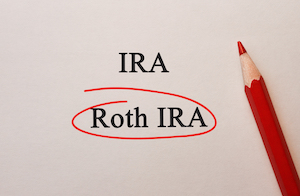 In a private letter ruling (PLR), the IRS has issued a waiver of the 60-day rollover deadline for Roth amounts erroneously deposited in traditional IRA. It issued PLR 202147015 on Sept. 1, 2021, but only recently released it.
In a private letter ruling (PLR), the IRS has issued a waiver of the 60-day rollover deadline for Roth amounts erroneously deposited in traditional IRA. It issued PLR 202147015 on Sept. 1, 2021, but only recently released it.
The Scenario
In the circumstance about which the IRS issued the PLR, a taxpayer established a Roth account under a 401(k) plan his employer established. The taxpayer left employment with the employer; he elected to have a direct rollover of his Roth contributions to a Roth IRA with a financial institution with which he already had a traditional IRA and a Roth IRA.
The taxpayer requested that a direct rollover be made from the plan to the financial institution so it could be put into the Roth IRA. The plan’s third party administrator sent two checks to the financial institution: one containing the amount from the designated Roth contributions and earnings, and the other containing pre-tax elective deferrals and earnings on them. The financial institution deposited both into the taxpayer’s traditional IRA despite the taxpayer’s request that the funds be rolled into his Roth IRA.
The financial institution suggested to the taxpayer that he submit a request that the IRS waive the 60-day rollover requirement so the mistake could be corrected.
The Holding
The IRS notes that Code Section 402(c)(3)(B) allows a waiver of the 60-day requirement when not granting one would be against equity or good conscience, and that events beyond the control of the individual subject to the requirement are among the circumstances that would make such a refusal unreasonable.
The IRS also notes that Revenue Procedure 2003-16 says that in determining whether to grant such a waiver, the IRS will consider all relevant facts and circumstances, including:
- mistakes by a financial institution;
- inability to complete a rollover due to death, disability, hospitalization, incarceration, restrictions a foreign country imposed or a postal error;
- the use of the amount distributed; and
- the time elapsed since the distribution occurred.
The IRS said that the information presented and the documentation the taxpayer submitted supported his contention that the failure to have the rollover take place within the 60 days was due to an error by the financial institution, and it waived the 60-day requirement. The IRS gave the taxpayer 60 days from the issuance of the waiver to roll the amount in question over to the Roth IRA.
Caveat
PLRs are not formal guidance and cannot be treated as precedent. They represent the IRS’ thinking given a specific set of facts and circumstances; however, they can give an indication of how the IRS may approach similar situations.

